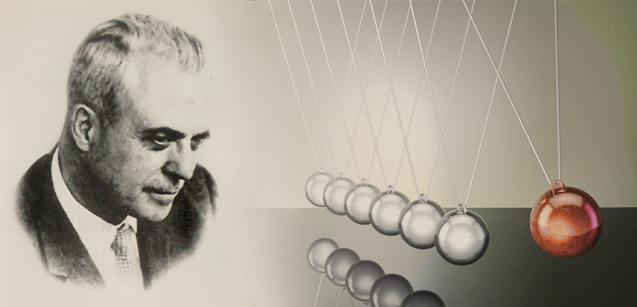Milton Erickson: Everyday Hypnosis Techniques
Here is a very simple and easy-to-understand example that clarifies this type of accumulation of barely noticeable cues, leading to a specific reaction.
The rest of the family was spending the evening out; I was feeling a bit under the weather but had settled comfortably in an armchair. My 17-year-old son, Bert, volunteered to stay home and keep me company, even though it wasn’t really necessary. He started a light conversation, mentioning the rush and commotion that arose when everyone had to be dressed, fed, and have all their things packed before our last vacation trip to northern Michigan (we lived in Michigan at the time). Then he talked about fishing, catching frogs, feasting on frog legs, having lunch on the beach, and how the little kids managed to get sand all over the food. He also recalled the albino frog we found in an abandoned quarry.
Next, he vividly described the chaos of carrying our belongings out of the summer cabin, the mistakes made in the process, searching for misplaced items, the disappearance of the little ones and the urgent search for them, locking up the cabin, and how hungry and tired we were when we finally arrived at the Wayne County General Hospital near Detroit, where we lived at the time.
At that moment, a vague thought crossed my mind to suggest that Bert take the car and go visit someone, but the idea faded as Bert, laughing, began to tell how, on the way back to Michigan from Wisconsin, his brother Lance really enjoyed Grandma Erickson’s fried chicken. Still laughing, he recalled another time when his younger brother Allan surprised everyone, especially Grandma and Grandpa Erickson, with his “bulldozer” eating style: he would bring his plate right up to his mouth and, systematically using his other hand, slowly and confidently shoveled the food into his mouth.
At that point, the thought of offering Bert the car keys for the evening came to me again, this time more clearly, because I really wanted to read in peace. But I forgot about it when I remembered my father’s amazed comment about the absolute efficiency and speed of Allan’s eating method.
As we laughed about this, Bert mentioned a trip to my brother’s farm and how six-year-old Betty Ellis solemnly answered the excited questions of three-year-old Allan about how a mother hen feeds her chicks, explaining that chickens aren’t mammals and only mammals nurse their young. As we laughed about this, the idea of offering Bert the car for the evening came to me a third time, now the clearest yet, and I realized what was happening.
Reminiscing, Bert was telling stories about pleasant and joyful events, each of which was connected to driving a car. However, he never once said the word “car”; the closest he came was phrases like “packing things,” “trip,” “let’s go see,” “on the way to the old quarry,” “on the way to the beach,” “on the way back to Michigan from Wisconsin,” and talking about the trip to my brother’s farm. He also never mentioned the word “keys”—the closest was “locking up the summer cabin.”
I immediately caught on and said, “The answer is no.” He laughed and said, “Well, Dad, you have to admit, it was a good try.”
“Not good enough—I figured it out too quickly. You put too much emphasis on car trips. You should have mentioned Ned’s workshop, where our car was serviced, or Ed Carpenter, from whom I bought the car, or the winter fishing trip we took in Emil’s car, which was still about a car. In short, you limited yourself to constantly and indirectly mentioning pleasant trips, always related to us, and all the events took place in our car. The subtext became too obvious. Did you really need the car?”
He replied, “No, I just wanted to have a little fun by prompting you to offer me the car keys.”



